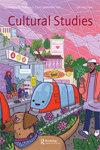Editors’ introduction: remembering blackly
IF 1.6
3区 社会学
Q1 ANTHROPOLOGY
引用次数: 0
Abstract
ABSTRACTShows like Moesha and Fresh Prince both fictionalized and revealed the twentieth-century dreams of Black folks who like Moesha’s family had just established themselves in Lamert Park or like Will had recently left gang and drug-infested urban streets. Friends like Tony and Joan or Khadijah and Maxine typified the friendships that many Black women had just developed in college settings like A Different World. They dated people like Lynn, Kyle, or Martin and created the material wealth that generations past could not access. These Black cultural productions positioned Black people, their conversations and their aspirations, as part of a larger project of inclusion and made our dreams seem possible. Remembering or engaging anew with Black cultural production of the 1990s and 2000s via streaming platforms re-introduced these dreams and the ways that the ‘too-rough fingers of world’ had made them immaterial. Seeing them again, with our new twenty-first-century eyes, forced us to bring our concerns to social media, to visual art and to music – sites where we continue to think, aspire and work collectively to manifest Black futures. The essays in this special issue then take seriously the complex nuances of remembering Blackly through and beyond these cultural productions. We charged the authors to think critically about nostalgia and how Black cultural production in Western contexts has not only shaped our understanding of contemporary discourses, but also in how we shape the future based on the (remembered) past across Black cultures. We hope that these essays provide further insight into the ways our contemporary moment will continue to shape our present and future renderings of the past. In addition, we envision that the authors’ ideas will affect how we access those pasts. Black nostalgia will mould our understanding of everything we think we remember.KEYWORDS: Nostalgiablacknessfuturepasttelevisionfilm Disclosure statementNo potential conflict of interest was reported by the author(s).编者按:记忆灰暗
像《莫沙》和《新鲜王子》这样的电视剧虚构并揭示了20世纪黑人的梦想,他们像莫沙一家那样刚刚在拉默特公园定居下来,或者像威尔那样刚刚离开帮派和毒品肆虐的城市街道。像托尼和琼,或者赫蒂彻和玛克辛这样的朋友代表了许多黑人女性刚刚在《不同的世界》这样的大学环境中发展起来的友谊。他们和林恩、凯尔或马丁这样的人约会,创造了过去几代人无法获得的物质财富。这些黑人文化作品将黑人、他们的对话和他们的愿望定位为一个更大的包容项目的一部分,使我们的梦想似乎成为可能。通过流媒体平台回忆或重新参与20世纪90年代和21世纪的黑人文化生产,重新介绍了这些梦想,以及“世界过于粗糙的手指”使它们变得无足轻重的方式。用我们21世纪的新眼光再次看到他们,迫使我们把我们的担忧带到社交媒体、视觉艺术和音乐上——在这些网站上,我们继续思考、渴望和共同努力,以展现黑人的未来。本期特刊中的文章严肃地探讨了通过这些文化作品和超越这些文化作品来纪念布莱克的复杂细微差别。我们要求作者批判性地思考怀旧,以及西方背景下的黑人文化生产如何不仅影响了我们对当代话语的理解,而且影响了我们如何在黑人文化中基于(记忆中的)过去塑造未来。我们希望这些文章能够提供进一步的见解,让我们了解我们的当代时刻将继续塑造我们现在和未来对过去的渲染。此外,我们设想作者的想法将影响我们如何访问这些过去。黑色怀旧会塑造我们对自认为记得的一切事物的理解。关键词:怀旧、忧郁、未来、电视、电影披露声明作者未发现潜在的利益冲突。
本文章由计算机程序翻译,如有差异,请以英文原文为准。
求助全文
约1分钟内获得全文
求助全文
来源期刊

Cultural Studies
Multiple-
CiteScore
3.50
自引率
6.70%
发文量
0
期刊介绍:
Cultural Studies is an international journal which explores the relation between cultural practices, everyday life, material, economic, political, geographical and historical contexts. It fosters more open analytic, critical and political conversations by encouraging people to push the dialogue into fresh, uncharted territory. It also aims to intervene in the processes by which the existing techniques, institutions and structures of power are reproduced, resisted and transformed. Cultural Studies understands the term "culture" inclusively rather than exclusively, and publishes essays which encourage significant intellectual and political experimentation, intervention and dialogue.
 求助内容:
求助内容: 应助结果提醒方式:
应助结果提醒方式:


